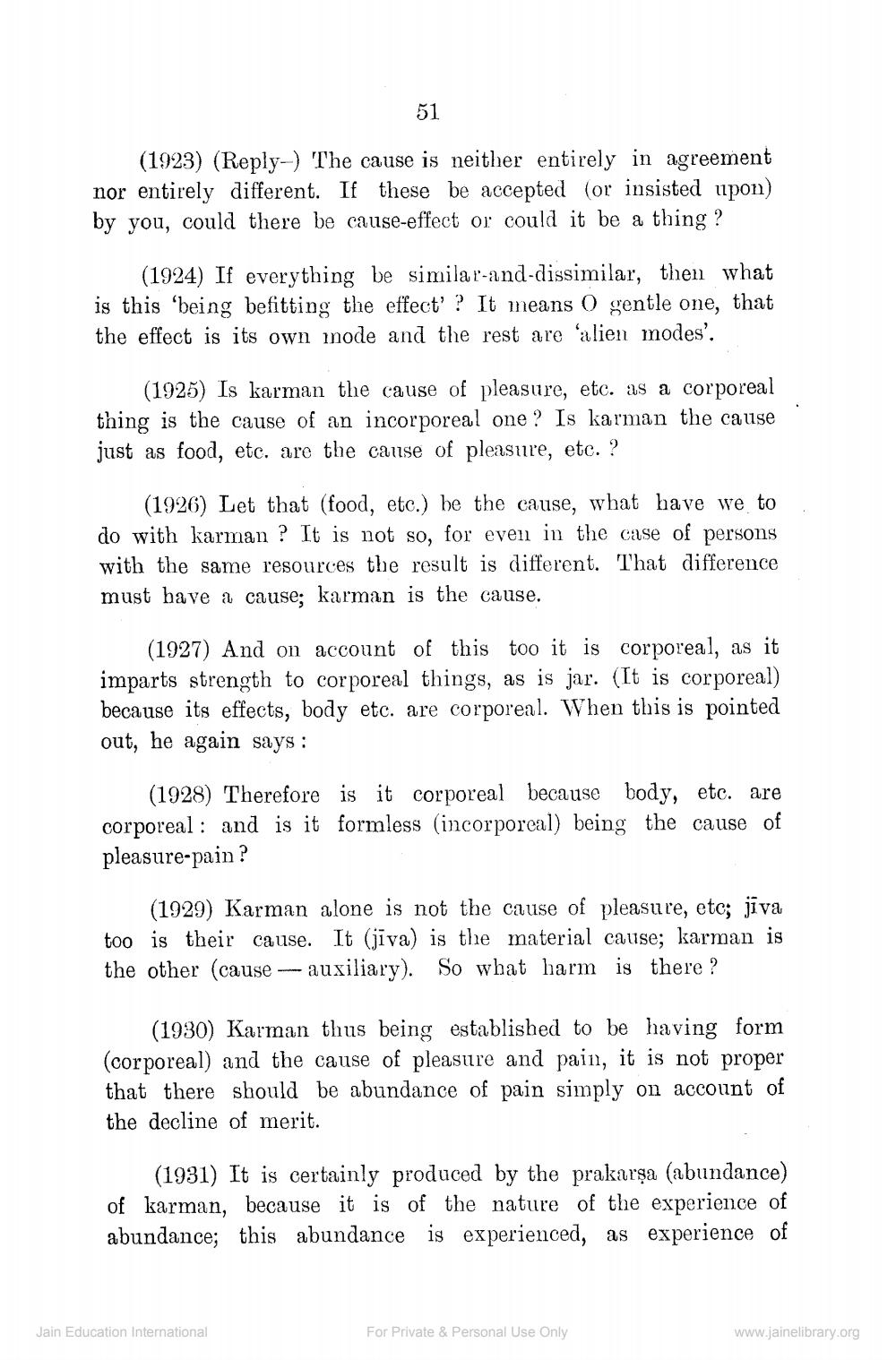________________
51
(1923) (Reply) The cause is neither entirely in agreement nor entirely different. If these be accepted (or insisted upon) by you, could there be cause-effect or could it be a thing?
(1924) If everything be similar-and-dissimilar, then what is this 'being befitting the effect'? It means O gentle one, that the effect is its own mode and the rest are 'alien modes'.
(1925) Is karman the cause of pleasure, etc. as a corporeal thing is the cause of an incorporeal one? Is karman the cause just as food, etc. are the cause of pleasure, etc.?
(1926) Let that (food, etc.) be the cause, what have we to do with karman? It is not so, for even in the case of persons with the same resources the result is different. That difference must have a cause; karman is the cause.
(1927) And on account of this too it is corporeal, as it imparts strength to corporeal things, as is jar. (It is corporeal) because its effects, body etc. are corporeal. When this is pointed out, he again says:
(1928) Therefore is it corporeal because body, etc. are corporeal and is it formless (incorporeal) being the cause of pleasure-pain?
(1929) Karman alone is not the cause of pleasure, etc; jiva too is their cause. It (jiva) is the material cause; karman is the other (cause auxiliary). So what harm is there?
(1930) Karman thus being established to be having form (corporeal) and the cause of pleasure and pain, it is not proper that there should be abundance of pain simply on account of the decline of merit.
(1931) It is certainly produced by the prakarsa (abundance) of karman, because it is of the nature of the experience of abundance; this abundance is experienced, as experience of
Jain Education International
For Private & Personal Use Only
www.jainelibrary.org




